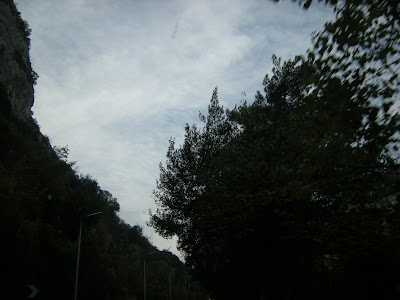
I remember.
P.S. out of the book: A conversation with George Seferis, Edmund Keeley, Athens 1982 (written in both languages).
S: …But translating is interesting always because it is a means of controlling your own language. Now of course the English language is a more stable language than ours; we have to create ours, so to speak, all the time we are writing.
K: Pound said that translation is a means for a writer to sharpen continually his awareness of his own language, and he advised young poets to translate whenever they could.
You are a poet who writes in a language which few people know outside Greece.
S: …This situation of not having a very large audience has something good in it too. I mean that it educates you in a certain way: not to consider that great audiences are the most important reward on this earth. I consider that even if I have three people who read me, I mean really read me, it is enough. That reminds me of a conversation I had once upon a time during the only glimpse I ever had of Henry Michaux. He told me: You know, my dear, a man who has only one reader is not a writer. A man who has two readers is not a writer either. But a man who has three readers (and he pronounced three readers as though they were three million), that man is really a writer.
K: I wonder if you have felt anything new and interesting through reading to large public audiences in this country. [U.S.A.] The evidence of friends of mine who have no knowledge at all of Greek is that they have captured, from your reading in Greek, a different sense of the poetry's rhythm from what they get out of my reading in English.
After your reading at Rutgers this fall, someone in the audience asked you what you thought of the English translations of your poetry, and you went on to make generous gestures towards your English translators, but then you added: Of course the best translation of my poetry is in Chinese, a language which I don't understand at all.
S: It's not difficult to elaborate on this, because you know, I feel in languages that I know that there are other possibilities in the translation.
K: …You've said on another occasion that the one thing which you find that the Anglo-Saxon tradition has and no other tradition has is that element of nonsense an element which is fairly continuous in our literature and which seems always to have existed in some form.
S: The Anglo-Saxon tradition is certainly different from ours in that respect; and I believe that no continental country can claim the same kind of nonsense that Edward Lear and Lewis Carroll offer.
K: Well, I've run out of questions. Since you don't have any grand advice for the younger generation, I have nothing more to ask you.
S: I have one advice.
K: Oh you do? Good.
S: I have the following advice to give to the younger Greek generation: to try to exercise themselves as much as they can in the modern Greek language. And not to write it upside down. I have to tell them that in order to write, one must believe in what one does, not seeming to believe that one is believing something. They must remember that the only job in which one cannot lie is poetry. If you are a liar, you'll always be discovered. I don't know what I mean. Perhaps it is an emotional thing. In the reality of one's thoughts. I don't know. I mean there is a special sound about the solid, the sound thing. You knock against it, and it renders a sort of sound which proves that it is genuine.
K: Do you think every writer always knows himself whether the sound he hears is genuine or not?
S: No. it is difficult to say. But he must somehow have an instinct, a guiding instinct- which says to him: My dear boy, my dear friend, be careful; you are going to fall. You are exaggerating at this moment. And then, when he hears that, he should not take a drug in order to say to himself: Why, you are all right, my dear. You are not all right, my dear, at all.

































